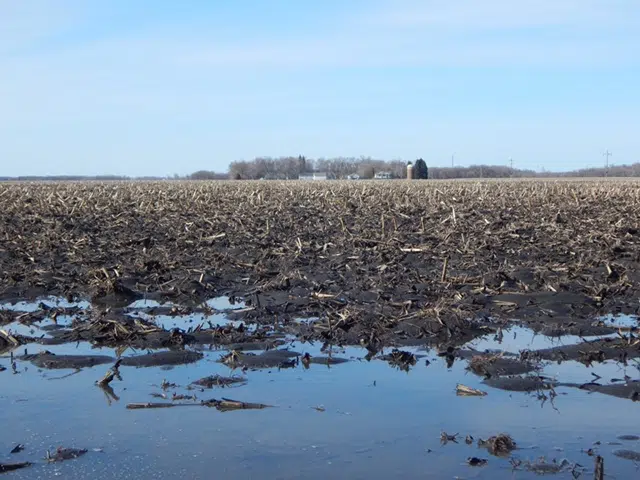
BISMARCK, N.D. (KFGO) – Twenty-four states filed a lawsuit in U.S. District Court in North Dakota Thursday against the U.S. Environmental Protection Agency and Army Corps of Engineers over the definition, control, and management of the country’s navigable waters.
The suit is the latest maneuver in a decades-long debate about the scope of the federal government’s authority and what kinds of waters – in particular streams, drainage ponds, and wetlands – fall under the definition of “waters of the United States,” better known as WOTUS.
N.D. Attorney General Drew Wrigley said he pushed for the case to be filed in North Dakota and the other states in the case agreed it was the appropriate venue due to the outsized impact of the rule on the state.
“When you look at the ratio of impacted acreage, I don’t know that there’s a state with more of a negative impact than North Dakota because of our unique geology with regard to our surface water and the potholes across much of the state – and then streams and rivers and also the drainage that falls into this – it is dramatic, it is all encompassing. I felt that it was important to file this lawsuit at what is really ground zero of the negative impact of this enactment by federal agencies,” Wrigley said.
The EPA and Corps’ recent finalization of a new rule with a revised definition of WOTUS was the tipping point for the attorneys general to file the case. They claim the rule is the Biden administration’s effort to expand its jurisdictional reach in “an unlawfully aggressive way,” and exceeds the agencies’ statutory authority under the Clean Water Act.
“The danger is, the swath is almost complete. It is profound to look at the geography and geology of North Dakota and see, under this definition, that there is very little land, corner to corner across the state that now doesn’t come under the purview of the federal government – what they say is the purview – and then whatever enactment they would want to have next week, next month, five years from now,” Wrigley said.
The states say the broader definition means management of more bodies of waters – in particular small and intermittent ones – are subject to “rigorous federal permitting requirements, potential criminal penalties for discharges, and much more.” Wrigley said North Dakota’s farmers and ranchers would be at a major disadvantage.
“They’re up against the federal government which has no limit to its litigation budget and they now have to employ counsel to push back and argue ‘no this drainage pond isn’t actually covered under your control and purview’,” he said.
North Dakota’s congressional delegation and Governor Doug Burgum have been vocal in their opposition to the new rule. Wrigley is continuing the battle that his predecessor Wayne Stenehjem waged for years. In 2015 the Obama administration expanded the EPA’s authority over WOTUS to include intermittent and ephemeral streams. That rule was challenged in court and subject to several preliminary injunctions. It was ultimately repealed in 2019 by the Trump administration.
The district court suit notes there is also a WOTUS case before the U.S. Supreme Court which is expected to be decided within the next few months.




Comments